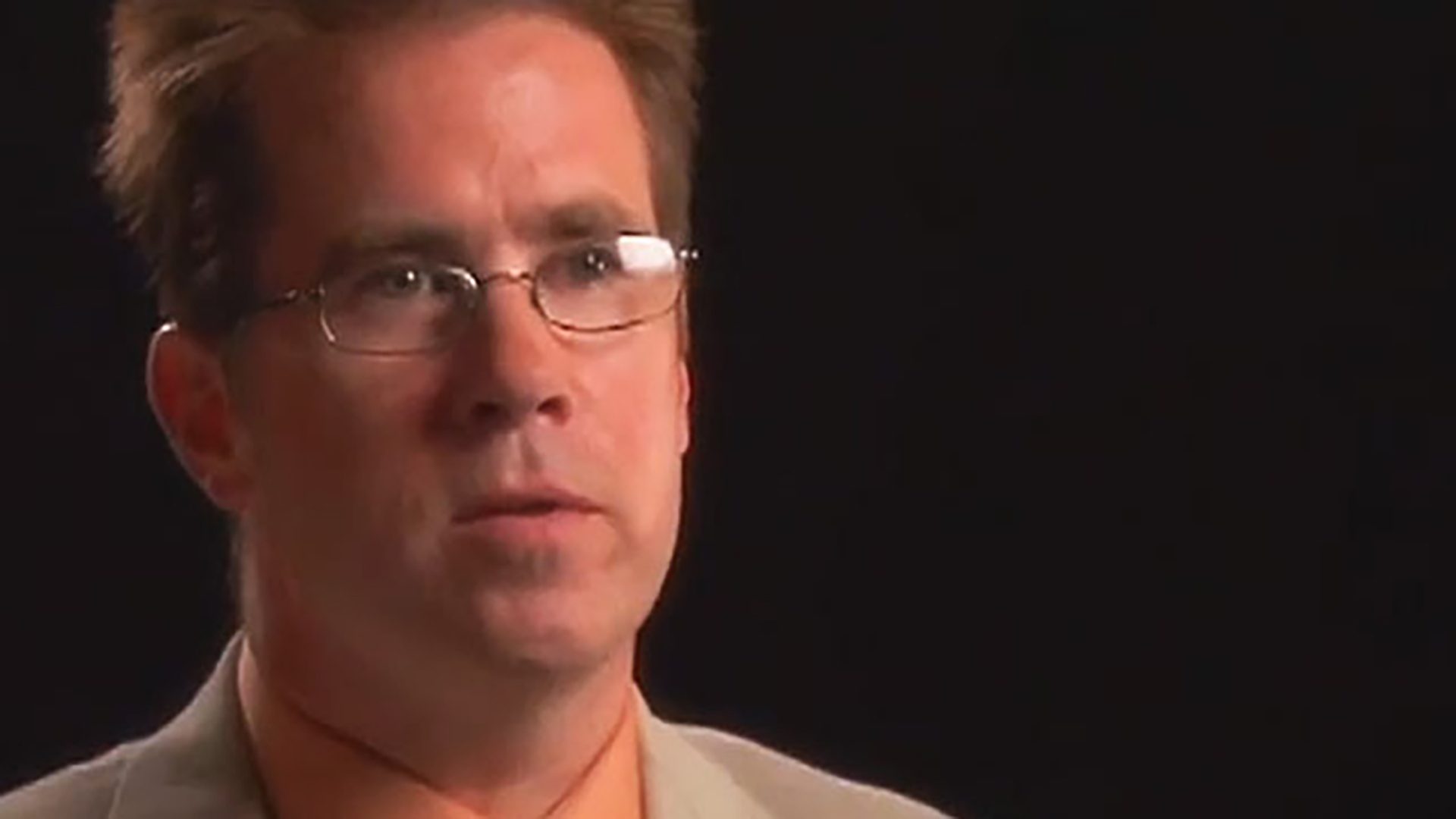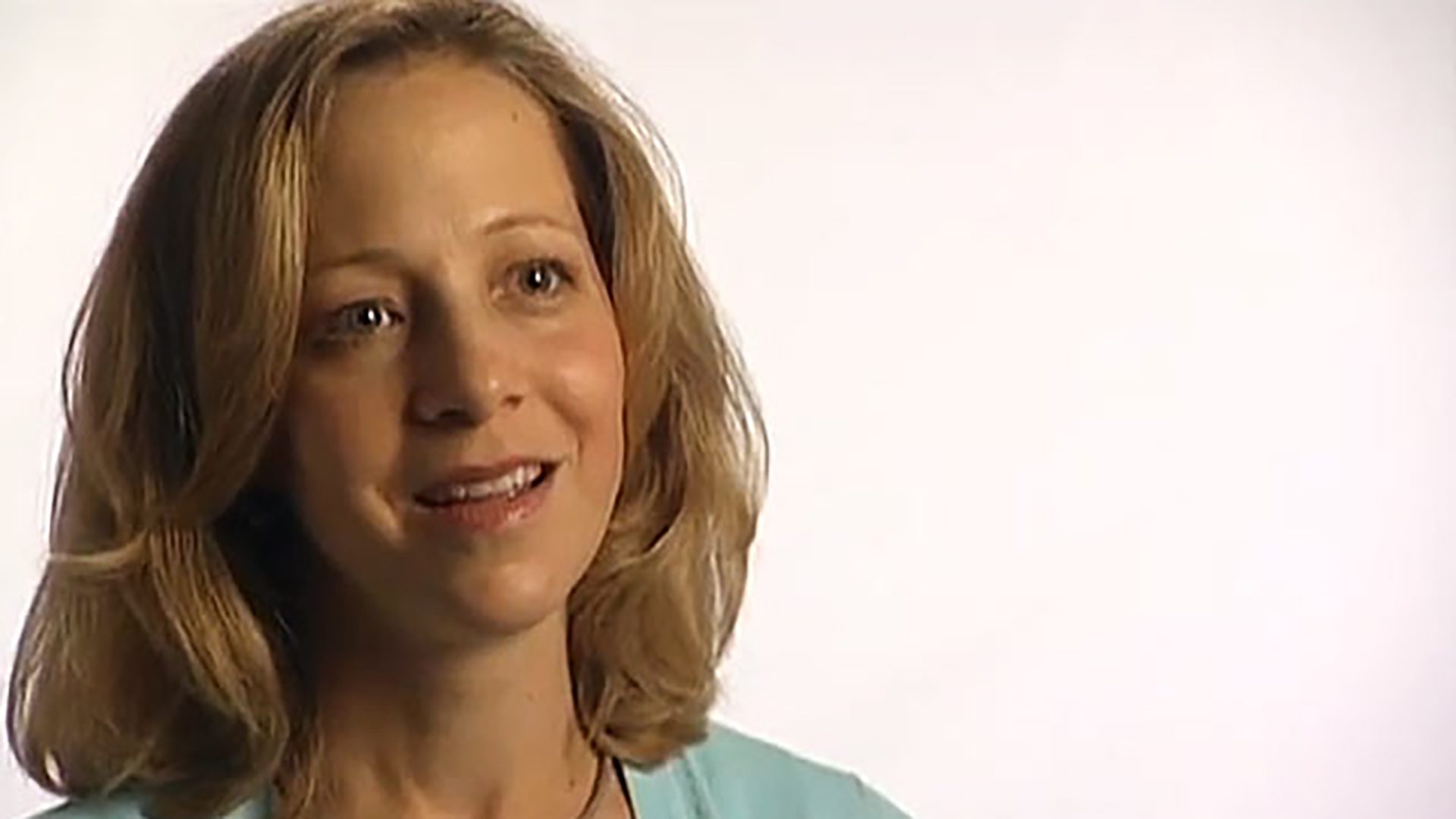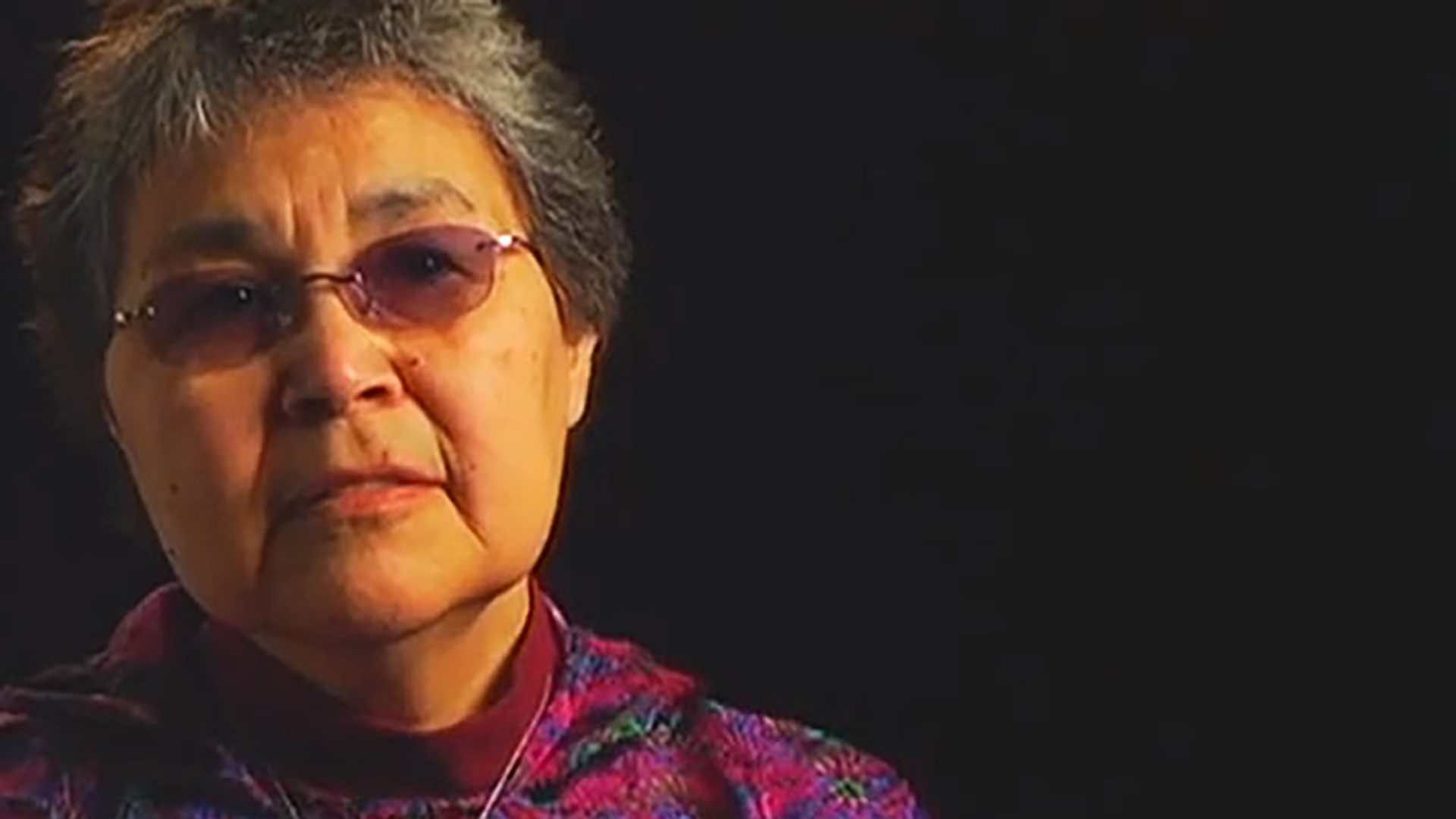Survivor Interview – Michael T.
Michael is a multiple myeloma survivor. He discusses changes to his bones, managing chronic pain, and returning to spirituality.

I became a multiple myeloma survivor when I was diagnosed in September of 2000.
I had back pain. And at the time, I was thirty-six-years-old. So I thought that I pulled a muscle working in the yard or something like that. I had an MRI done, which showed a plasmocytoma in my sacrum. It was about the size of a golf ball, and it destroyed two-thirds of my sacrum by the time they caught it. It was not in an aggressive stage at the time. Besides the tumor which was destroying my sacrum, I really didn’t have any other bone involvement.
They gave me a light dose of radiation first, because I was in incredible pain from the tumor pressing on all the nerves. Because your stem cells get compromised once you get hit with radiation, they decided to remove and freeze my stem cells, so that they could do a stem cell transplant when the disease got more aggressive. Then I came back and they hit me with higher radiation. The numbers dropped significantly once they hit it with radiation, but they were still showing that it was active. There was something in there still producing the protein. After the radiation, I just get a treatment once a month. It’s called Aredia. It’s been four years now, and I still get it once a month.
After that, I coasted along okay. My numbers were stable. Maybe 14 months after that, I started cracking ribs. I would blow my nose and break a rib. I would cough and break a rib. At that point, the doctors decided it was time to do something. We were going to do a stem cell transplant, which was definitely a major ordeal to go through, especially at my age and with a family. For me, it worked. It’s given me some time. I have gone a few years now since the transplant, and I’ve been basically free of taking any kind of medications. Quality of life was our most important issue. Obviously, when you are taking medications, there are always drawbacks because you’re taking it for something but you feel lousy. And for the last two years, I’ve been going pretty well without having any kind of increase in my numbers.
After going through all the pain that I went through, I finally looked to see if there was anyone that could surgically repair my sacrum and get me out of pain. We did a kyphoplasty on the sacrum. It’s normally done in the spine, and it’s been done a few times in the sacrum, but it was the first time it was done in this particular hospital. The procedure didn’t go well. In a kyphoplasty, they basically inject cement to fill an area in. Because my sacrum was so porous, some of it escaped into my sciatic nerve, so now I have a piece of cement in my sciatic nerve. The pain is worse than it was from when I initially started. Right now, I’m fighting that battle. I couldn’t walk for two months. I was in so much pain, and I’m still in so much pain. Just to get up in the morning is an ordeal, walking and trying to play with my children. I force myself to do those things because I really want to do that. But there are some things I have to hold back on because, physically, I can’t do it.
In order to feel better, I take pain medication. I really didn’t want to do a nerve block because it would basically make it numb, and I try to stay active. I’ve been working with a pain management nurse. She’s been giving me a cream to rub on the sacral area to deaden the pain in that area. But I’ve just started it, so I’m not really sure on the results yet. I’m hoping that it will get to the point where I could decrease my pain medications. My other option is acupuncture. I’m thinking that I might explore that avenue. There’s not much risk involved. So I think if what I’m doing right now doesn’t work, I’m going to approach that.
Quality of life, to me, means everything because when you’re taking medications, it makes you feel rotten, even though it’s helping you fight the disease. Before I started my transplant, I had to take dexamethasone for three or four months. It’s awful. I really don’t know too many people that have taken it in high doses that have really fared well. It makes it hard to tolerate anything. You get very aggravated, very annoyed. Physically, it made me feel awful. There are side effects with everything. That’s a major issue because when you’re not feeling like yourself, it really affects your outlook on life.
My wife has been a rock through the whole thing. She’s my soul mate and my best friend, and there’s no way I could have gotten through this without my wife and my children. We’re a very close family. We do everything together. We talk to each other. And that’s a major issue. We’ve always had great communication in our family. My wife has been there every step of the way. When I had my transplant, she stayed the whole three weeks in the hospital. It was huge, just knowing I had that support. She took care of my insurance and all our other medical issues. She’s very adept at doing it. I couldn’t handle that. It’s very important having a support.
My kids are great. They’re our life. They’ve actually done quite well. My son was very young at the time. He didn’t really understand that I was sick. But my daughter was old enough that she knew, and I used to hate to think that at her age, she had to worry about her father maybe dying. That just crushed me because kids that young shouldn’t have to worry about stuff like that. She’s had to deal with that her whole life now. We tried to be honest, but also have tried to take the edge off of things. Before we had my transplant, I shaved my head because I knew my hair was going to fall off from all the chemo, and we did it as a family. They had fun shaving my head. Keep them involved. Don’t keep them in the dark. I think it is very important to share with your children and to talk to them. Let them know what is going on. You don’t have to get into every detail, but tell them that you’re going to fight it. That’s how I approached it.
The emotions run everywhere because in the beginning, you’re scared. I remember breaking down just thinking, “Jeez, I might be dead next year. How many days do I have to live? How many weeks?” My faith helped me tremendously. I was actually quite involved with my church when I was growing up as a kid. I was an altar server, and I was involved in the CYO. But once I got married and started having children, it was hard to bring them to church because they were little and would cry. I also worked six days a week, sometimes seven, and Sunday was my only day off. I wanted to spend it with my family. So I got to the point where I kind of pushed it aside. Of course, when I got sick, I’m looking for Him and He was there. It definitely brought our whole family back into the Church. That’s one of the positives that has come from this.
When I was working, we had my insurance. There wasn’t a myeloma specialist at the time in Connecticut. So I was referred to New York City. It was an ordeal because it was out of network. My wife did so much work to get it through. She didn’t put up with anything from the insurance company. She was ready to battle them and even now, she still does. She got it through and eventually they had a special clause where I was considered in the network, so they covered a lot of my things. She had to fight for a lot of things to be covered. Even then, we had to pay quite a bit out of pocket. We’ve switched insurance since, and now I’m fighting a whole different battle.
I think it’s important to share my story because multiple myeloma is hardly ever heard of, and it’s a devastating disease. We look to give back. I’ve been fortunate enough to go through what I went through and now I’m feeling pretty good. So we have a support group that we run through the International Myeloma Foundation. I highly recommend any myeloma patient to visit their Web site. They educate you. They’re there for you. They have the 24-hour hotline. They’re wonderful people. They helped us a great deal getting through everything. They were a Godsend for us.
My name is Michael Tuohy, and I’m a multiple myeloma survivor.

